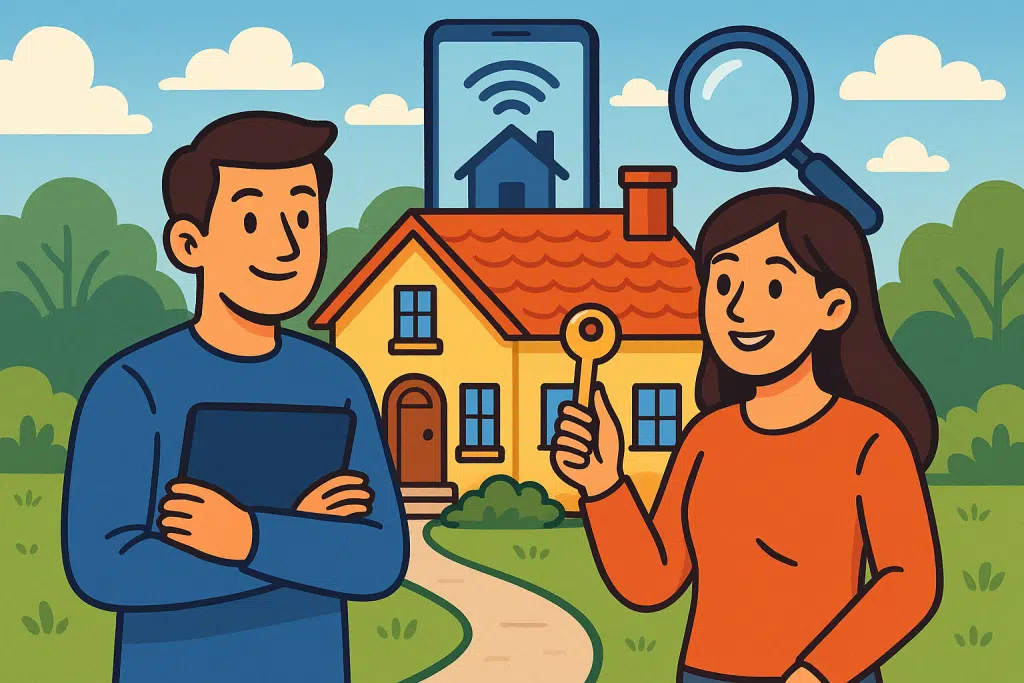Real Estate Insights for Smart Home Buyers
Isabella Lewis August 15, 2025
Dreaming of a home that saves you money while saving the planet? Right now, homeowners can tap into government and private sector energy efficiency grants worth up to 25,000 dollars, plus generous tax credits, to make that dream a reality. These incentives are slashing the cost of buying or upgrading to a smart, energy-efficient home—and with housing demand shifting toward green tech, the clock is ticking for buyers who want in before prices jump.

1. Why Smart Homes Are the Future of Real Estate
In the last five years, energy-efficient homes have moved from niche to mainstream. The U.S. Department of Energy reports that homes with smart thermostats, solar panels, and upgraded insulation can cut utility bills by 20–30% annually (U.S. Department of Energy 2023).
What’s more, as climate change concerns grow, buyers are increasingly prioritizing sustainability, not just for environmental reasons but for long-term cost savings. A recent Zillow study found that listings highlighting energy-efficient features sold 2.4% faster and for an average 9,000 dollars more than comparable homes without them (Zillow 2024).
This shift is driving a wave of incentives—from federal grants to state-level tax rebates—making now the ideal time for buyers to enter the market.
2. How Energy Efficiency Adds Value to Your Property
Energy-efficient upgrades don’t just cut your bills—they boost your property value.
According to the National Association of Realtors, homes with solar installations see a median price premium of 15,000 dollars compared to non-solar homes (National Association of Realtors 2023).
Key reasons for increased value:
- Lower operating costs appeal to buyers.
- Future-proofing against rising energy prices.
- Compliance with upcoming stricter building codes.
- Enhanced comfort and indoor air quality.
3. 25K Dollars in Grants & Tax Credits: Who Qualifies and How to Apply
If you’re a smart home buyer, you could qualify for federal grants worth up to 25,000 dollars for energy efficiency projects, plus additional tax credits for certain installations.
Available Incentives in 2025:
- Federal Energy Efficiency Home Improvement Credit – Up to 3,200 dollars annually for qualifying upgrades.
- Residential Clean Energy Credit – 30% back on solar, wind, or geothermal systems.
- State-Specific Green Home Grants – California, New York, and Colorado offering up to 25,000 dollars in direct rebates.
- Low-Income Home Energy Assistance Programs – Additional support for households below median income.
Application Steps:
- Get an Energy Audit – Many grants require a certified audit.
- Choose Qualifying Upgrades – Solar, heat pumps, high-efficiency windows, and insulation are top options.
- Submit Documentation – Include proof of purchase and installation.
- Claim Tax Credits – File with your annual tax return.
4. The Smart Home Features Buyers Want Most in 2025
If you’re planning to buy a new property or retrofit your current home, the real estate wish list for 2025 is clear: buyers want comfort, efficiency, and future-proof tech. Sustainability is no longer a bonus—it’s an expectation. Here are the features topping the charts this year and why they matter:
- Solar Panels with Battery Storage – Homeowners aren’t just looking for lower electricity bills; they want energy independence. Solar panels paired with home battery systems can store excess energy for use during peak hours or outages, making your home more resilient and eco-friendly.
- Smart Thermostats & Zoning HVAC Systems – Instead of heating or cooling the whole house equally, zoning systems allow homeowners to control temperatures in different areas. Paired with AI-driven smart thermostats, they learn your habits, save money on energy bills, and keep everyone comfortable.
- High-Performance Windows & Insulation – These upgrades aren’t just about comfort; they drastically reduce energy loss. Buyers know that a well-insulated home stays cooler in the summer, warmer in the winter, and cheaper to maintain year-round.
- Electric Vehicle (EV) Charging Stations – With EV adoption accelerating, having a built-in charging station isn’t just convenient—it’s a selling point. Buyers want the ability to plug in at home without expensive aftermarket installations.
- Water-Efficient Fixtures with Smart Leak Detection – Think low-flow showers and faucets, but smarter. Advanced systems can detect leaks in real-time, preventing costly water damage while conserving resources.
In short, today’s buyers want homes that work smarter, cost less to run, and leave a smaller footprint on the planet. If you’re selling, adding even one of these features can make your property stand out. If you’re buying, checking for them now could save you thousands later.
5. Financing Energy-Efficient Upgrades Without Draining Your Savings
You don’t have to empty your bank account to make your home greener. These days, there are plenty of creative ways to finance energy-efficient upgrades so you can start saving on utilities without feeling the pinch upfront. Many buyers are exploring a mix of these options:
- Green Mortgages – Some lenders offer special mortgages or higher borrowing limits for homes with energy-efficient features. This can help you roll the cost of upgrades like solar panels, triple-glazed windows, or advanced insulation into your home loan, spreading payments over time instead of paying in one lump sum.
- PACE Financing – The Property Assessed Clean Energy program lets you finance upgrades through your property taxes. You pay the loan back over a set term—often 10–20 years—right alongside your annual tax bill. The best part? The repayment obligation stays with the property, not you, which can be a selling point if you move before the loan is fully paid.
- Builder Incentives – Many developers now offer discounts, rebates, or free upgrades if you choose eco-friendly features during construction. This could mean getting a high-efficiency HVAC system, a smart home energy monitor, or solar-ready wiring installed at little to no extra cost.
- Utility Rebates & Tax Credits – Local utilities and governments often provide cash rebates or tax deductions for energy-efficient improvements, reducing your overall expense. This might cover part of the cost of installing Energy Star appliances, LED lighting systems, or renewable energy sources.
- Home Improvement Loans – Personal loans or lines of credit can also help spread costs. While interest rates may be higher than a mortgage, they can still make sense for smaller projects that pay for themselves in energy savings over time.
By combining these financing tools, you can transform your home into an energy-efficient powerhouse without putting unnecessary stress on your savings account.
6. Hidden Costs and How to Avoid Them
While grants help, beware of:
- Maintenance costs for solar and battery systems.
- Subscription fees for premium smart home apps.
- Insurance adjustments for high-value tech installations.
7. Expert Tips for Negotiating the Best Price on a Smart Home
- Leverage inspection results—If tech is outdated, use it to negotiate.
- Ask sellers about transferable warranties.
- Request closing cost credits for planned upgrades.
8. The 2025 Market Outlook for Energy-Efficient Real Estate
Analysts expect the green home market to grow by 8.5% annually through 2030 (Global Market Insights 2024). Rising energy prices, stricter building codes, and consumer demand will continue to push values higher—especially for homes with solar and EV infrastructure.
9. Final Thoughts: Moving Fast in a Market That’s Heating Up
For smart home buyers, 2025 presents a rare alignment of incentives, demand, and technology. Those who act now can secure grants worth tens of thousands and lock in lower operating costs for years to come.
References
- National Association of Realtors. (2024). Home buyers and sellers generational trends report. https://www.nar.realtor
- U.S. Department of Housing and Urban Development. (2023). Buying a home: A consumer guide. https://www.hud.gov
- Zillow Research. (2024). Housing market predictions 2024. https://www.zillow.com







